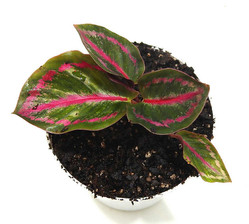Are you a plant lover with pets at home? It's important to know which plants are safe for your furry friends and which to avoid. Here's a quick guide!
Pet-Safe Plants
These plants are non-toxic to cats and dogs, making them great choices for your home:
Spider Plant (Chlorophytum comosum)
A hardy, air-purifying plant that’s safe for both cats and dogs.
Boston Fern (Nephrolepis exaltata)
A classic, easy-to-care-for plant that adds a touch of green to your space and is safe for pets.
Areca Palm (Dypsis lutescens)
A beautiful tropical plant that’s safe and great for bright spaces.
Calathea (Calathea spp.)
Known for their vibrant leaves, these plants are perfect for pet owners.
Bamboo Palm (Chamaedorea seifrizii)
A pet-safe indoor plant that also improves air quality.
Ponytail Palm (Beaucarnea recurvata)
Unique and pet-friendly, this plant is a great addition to any home.
African Violet (Saintpaulia spp.)
These flowering plants are not only beautiful but safe for pets, too.
Harmful Plants to Avoid
These plants can be toxic to pets and should be kept out of reach or avoided:
Lilies (Lilium spp.)
Extremely toxic to cats and can cause kidney failure, even in small amounts.
Sago Palm (Cycas revoluta)
Highly toxic to both dogs and cats, causing liver damage if ingested.
Aloe Vera (Aloe barbadensis miller)
Great for humans, but toxic to pets, causing vomiting, diarrhea, and lethargy.
Philodendron (Philodendron spp.)
Can cause oral irritation, swelling, and vomiting in pets if ingested.
Peace Lily (Spathiphyllum spp.)
Causes mouth irritation, excessive drooling, and difficulty swallowing if eaten by pets.
Tulips (Tulipa spp.)
Tulip bulbs are particularly toxic and can cause stomach upset and nervous system issues in pets.
Snake Plant (Sansevieria trifasciata)
While popular, it can cause nausea, vomiting, and diarrhea in cats and dogs.
Tips for Pet Owners
Keep plants out of reach of pets, especially if they like to chew on leaves.
Consider placing pet-safe plants in easily accessible areas and keeping harmful ones higher or in off-limits spaces.
If you suspect your pet has ingested a harmful plant, contact your vet immediately.
For more pet-safe plant and pet care advice, visit us at: Out of the dog box








Comentarios